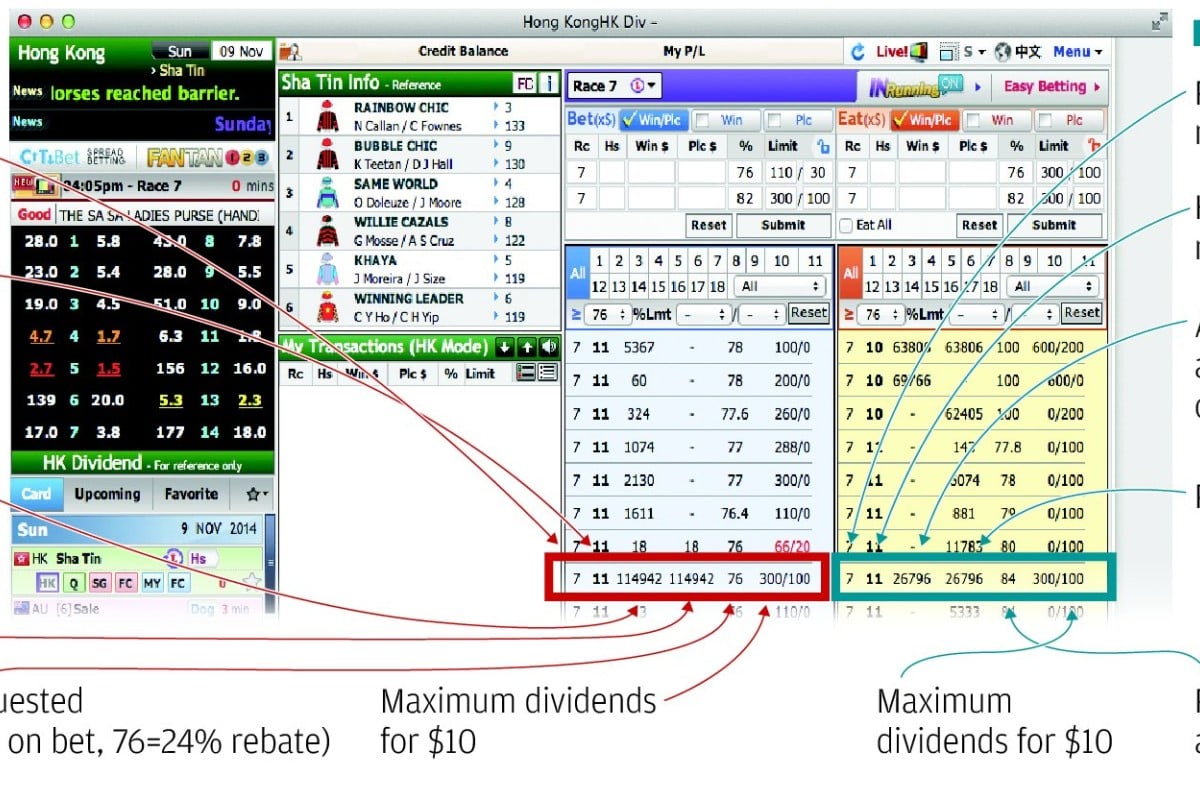Described as "Amway for gamblers" by one punter, the pyramid structure of low margin operator CITIbet creates a can't lose situation for so-called super agents at the top, an easy opportunity for junket operators in the middle and appears to have become a haven for small-time hit men, opportunists and risk-takers at the bottom.
Super agents are essentially large illegal bookmakers, and may be one and the same when it comes to the undisclosed ownership of the site. They sit at the top of the tree and are believed to pay as little as 0.5 per cent per cent on turnover. The super agents can direct big-money clients to play, or take bets from big punters and place bets themselves.
Super agents each have their network of bookmakers or other agents who collect bets and pay a slightly larger fee to gain access to the site. The world's biggest professional gamblers are attracted to the sites' large rebates and activity and also negotiate low fees with agents or the actual site.
Individual account holders also negotiate with agents the maximum credit and liability allowed, with some big players believed to have liability of up to HK$1billion.
The system filters down to the smallest players, who are forced to pay a much larger fee on turnover for the right to gain access to the lucrative rebates. Each agent, from the top down, ensures the player he introduces to the site pays, or is paid winnings, when settlement is made, usually each Monday.
How he does that is not the site's concern, but the responsibility of payments is passed up the tree to the largest stakeholders. If the account holder an agent introduces doesn't pay, they are left holding the liability - but, as one big account holder put it "everyone pays".
Agents are now brazenly advertising for clients on social media platforms like Facebook and WeChat, offering lines of credit without question and it can take a matter of minutes for a new player to be betting. The CITIbet website and those of other platforms appear to be blocked in Hong Kong, but can be easily accessed using a Virtual Private Network.
The company is licensed in the Philippines, whose laws allow betting operators to be "based" there as long as the company doesn't bet on Philippines sport. Betting instead takes place on racing - including harness racing and greyhound racing - from anywhere with live TV coverage. Bizarrely, given its outlaw reputation, CITIbet claims to be self-regulated and has laws on integrity and price manipulation.
CITIbet bans accounts for fraudulent transactions or non-payment. The site even lists accounts it suspects of pool manipulation, where punters bet into legal pools to lower, or increase, payouts. These integrity measures seem aimed at protecting account holders more than the actual events the sites bet on.
The CITIbet model is said to have been copied from betting operations at illegal casinos based on islands off Singapore, where a black-market trading of bets by Asia's bookmakers on racing was rife. Now the bookmakers simply operate in a virtual trading room.
"Illegal bookmakers never had it so good," said one professional punter. "They've been able to migrate their operations online. From Shanghai, to Shenzhen and down to Bali and everyone in between, these sites give them a reach they could never dream of previously."
How the betting works
CITIbet and sites like it allow punters to either bet or offer bets. The prices are based on an agreed totalisator operator's starting odds.
The site works through two account holders agreeing on a rebate for a bet. Account holders essentially bid, putting up what rebate they are happy to either "bet" with, or take a bet on, termed "eat" in Asian betting terminology (as in "eat" betting tickets), or commonly known as "lay" betting in Western culture.
For instance, an account holder may offer a 10 per cent rebate on a particular horse, and set a limit on how much may be bet - meaning another player can pay $900 for what represents a $1,000 bet based on tote price.
Win bets, quinella and quinella place tickets are capped at 29-1 and place bets at 9-1. An account holder must have 30 times the value of a ticket in available credit to offer a win, quinella or quinella place bet, and 10 times what he is offering for a place bet.















